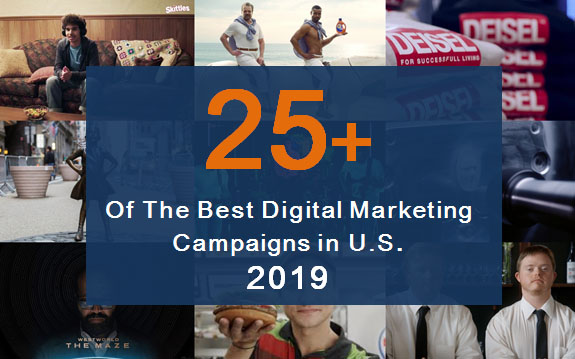The Role of Artificial Intelligence in Modern Marketing
Artificial Intelligence | Aug 14, 2024
As technology continues to evolve, artificial intelligence (AI) has emerged as a transformative force across various industries, including marketing. For marketers, understanding AI is no longer optional; it’s essential for staying competitive in the digital landscape.
This article explores the fundamentals of AI, its applications in marketing, and the key insights that marketers need to know to leverage this powerful technology effectively.
What Is AI Artificial Intelligence
Artificial intelligence (AI) refers to the simulation of human intelligence in machines that are designed to think, learn, and make decisions. These systems are capable of processing large amounts of data, recognizing patterns, and performing tasks that typically require human intelligence, such as language processing, problem-solving, and decision-making. AI is not just a single technology but an umbrella term that encompasses various subfields, including machine learning, natural language processing, and computer vision.
With a clear understanding of AI as a concept, let’s move on to how AI is reshaping the marketing landscape.
How AI is Transforming Marketing
The impact of AI on marketing is profound, offering new ways to understand customer behavior, optimize campaigns, and improve overall efficiency. By analyzing vast datasets, AI enables marketers to gain deeper insights into customer preferences, predict trends, and personalize experiences at scale. This transformation allows for more targeted and effective marketing strategies, reducing waste and increasing return on investment (ROI).
Moreover, AI-driven tools can automate routine tasks such as content creation, email marketing, and social media management, freeing up marketers to focus on more strategic activities. As we delve deeper, we’ll explore some specific applications of AI in marketing.

Key Applications of AI in Marketing
AI is being utilized in various ways within the marketing industry, each offering unique advantages:
- Personalization: AI can analyze customer data to create personalized marketing messages and product recommendations, enhancing customer engagement and satisfaction.
- Predictive Analytics: By leveraging machine learning algorithms, AI can predict future customer behaviors and trends, enabling marketers to make more informed decisions.
- Chatbots and Customer Service: AI-powered chatbots provide instant, personalized customer support, improving the customer experience while reducing operational costs.
- Content Creation: Tools powered by AI can generate content such as articles, product descriptions, and social media posts, ensuring consistency and efficiency across marketing channels.
- Ad Targeting: AI enables more precise ad targeting by analyzing user behavior and preferences, resulting in higher conversion rates and better ROI.
These applications demonstrate how AI is revolutionizing marketing practices, making campaigns more effective and customer-centric. Next, we’ll discuss the benefits that AI brings to marketers.
Benefits of AI for Marketers
Integrating AI into marketing strategies offers several key benefits that can drive business growth:
- Enhanced Efficiency: AI automates repetitive tasks, allowing marketers to focus on strategy and creativity, leading to more efficient workflows.
- Improved Accuracy: AI-driven data analysis minimizes human error and provides more accurate insights, enabling better decision-making.
- Scalability: With AI, marketers can scale their efforts without compromising on quality, reaching larger audiences with personalized content.
- Cost Savings: Automating processes and optimizing campaigns with AI reduces the need for extensive human resources, leading to significant cost savings.
- Real-Time Insights: AI provides real-time data analysis, allowing marketers to adapt their strategies quickly in response to changing market conditions.
These benefits highlight why AI is becoming an indispensable tool for modern marketers. However, to fully harness its potential, marketers need to be aware of certain challenges and considerations.

Challenges and Considerations in Implementing AI
While AI offers numerous advantages, implementing it in marketing strategies is not without challenges. Here are some key considerations:
- Data Privacy: With AI relying heavily on data, marketers must ensure that they comply with data privacy regulations such as GDPR. This requires careful management of customer data to avoid legal issues and maintain trust.
- Cost of Implementation: Initial investment in AI technologies can be high, particularly for small businesses. Marketers need to assess the long-term ROI to justify these costs.
- Skills Gap: Effective use of AI requires specialized skills and knowledge. Marketers may need to invest in training or hiring experts to fully leverage AI capabilities.
- Integration with Existing Systems: Incorporating AI into existing marketing tools and platforms can be complex and may require significant adjustments to workflows.
- Ethical Considerations: The use of AI in marketing raises ethical questions, such as the potential for bias in algorithms and the transparency of automated decision-making processes.
Understanding these challenges is crucial for marketers looking to implement AI successfully. Despite these hurdles, the potential rewards make AI a worthwhile investment.
Future Trends in AI for Marketing
As AI continues to evolve, new trends are emerging that will further shape the marketing landscape. Some of the key trends to watch include:
- AI-Driven Customer Journeys: AI will play a larger role in guiding customers through personalized journeys, from awareness to conversion, based on real-time data and behavior analysis.
- Voice Search Optimization: With the growing popularity of voice-activated assistants, marketers will need to optimize their content for voice search, which relies heavily on AI.
- Visual and Video Content Creation: AI-powered tools will increasingly be used to create visual and video content, automating complex tasks such as video editing and graphic design.
- Hyper-Personalization: Moving beyond basic personalization, AI will enable hyper-personalized experiences, delivering content that is tailored to individual preferences and needs.
- AI Ethics and Transparency: As AI becomes more prevalent, there will be a greater focus on ethical considerations, including the need for transparency in how AI algorithms make decisions.
These trends indicate that AI will continue to be a driving force in the future of marketing, offering new opportunities for innovation and growth.
Tips for Marketers Adopting AI
Now that we’ve explored the benefits, challenges, and future trends of AI in marketing, let’s look at some practical tips for marketers who are considering adopting this technology:
- Start Small: Begin with small AI projects that can provide quick wins and build confidence within your team. This approach allows for the gradual scaling of AI initiatives.
- Invest in Data Quality: AI relies on high-quality data to function effectively. Ensure that your data is clean, accurate, and up-to-date to get the best results from your AI tools.
- Focus on Customer Experience: Use AI to enhance the customer experience by delivering personalized, relevant content and improving customer interactions.
- Collaborate with Experts: If your team lacks AI expertise, consider partnering with external experts or agencies that specialize in AI to guide your implementation process.
- Monitor and Adjust: Continuously monitor the performance of your AI-driven campaigns and be prepared to make adjustments as needed to optimize results.
By following these tips, marketers can effectively integrate AI into their strategies and maximize the benefits of this powerful technology.
Conclusion
Artificial intelligence (AI) is rapidly transforming the marketing landscape, offering unprecedented opportunities for personalization, efficiency, and scalability. By understanding the fundamentals of AI, its applications, and the challenges associated with its implementation, marketers can harness its potential to drive better outcomes and stay ahead in the competitive digital marketplace. As AI continues to evolve, staying informed and adaptable will be key to leveraging its full potential in marketing.





